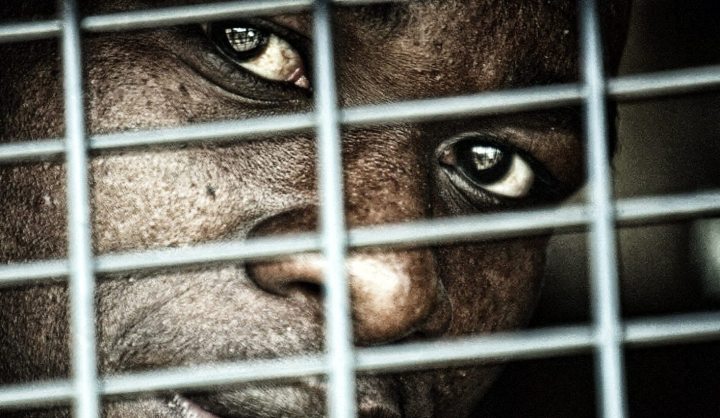South Africa
Torture: Alive and well in South Africa, but why?

The date 26 June marks the International Day in Support of Victims of Torture – a day marked globally to reinforce our commitment to the absolute prohibition of torture and other cruel, inhuman or degrading treatment or punishment. For South Africans, this is a day that should have particular resonance. By TRACY DOIG and SHIREEN MUKADAM, Amnesty International’s team for South Africa.
Torture was routinely used by the apartheid regime to punish and repress those opposed to its brutal and discriminatory policies and practices. Some of the victims survived and are celebrated as heroes – others, like Imam Abdullah Harun, died and are considered martyrs.
Despite being free from apartheid for more than two decades, the use of torture continues in South Africa today. Yet torture survivors now are usually overlooked. Since victims are often criminal suspects, some feel that inflicting extreme suffering on them is justified.
But the use of torture is always unlawful and wrong, and survivors always deserve justice and redress regardless of why they were tortured – like Richard Nzama, who was arrested by members of the KwaZulu-Natal Glebelands Provincial Task Team in July 2015. During his arrest, he claims that he was suffocated, severely beaten and had a stick pushed into his eye.
Others don’t live to see justice for the pain they have endured. Zinakile Fica was arrested at Glebelands Hostel in Durban in March 2014 and died during interrogation at Prospecton police station. The results of an independent post-mortem examination and witness evidence indicate that he was ‘tubed’ (suffocation torture) with a plastic sealable evidence bag.
The Universal Declaration of Human Rights, adopted in 1948, is clear:
No one shall be subjected to torture or to cruel, inhuman or degrading treatment or punishment.
South Africa ratified the United Nations Convention against Torture and Other Cruel, Inhuman or Degrading Treatment or Punishment (CAT) in 1998 and signed the Optional Protocol to the CAT in 2006, but has yet to ratify it.
Although South Africa prohibited torture in the Bill of Rights in Chapter 2 of the Constitution and ratified a number of international and regional instruments prohibiting torture absolutely, it only introduced new domestic legislation that specifically criminalises torture in 2013, the Prevention and Combating of Torture of Persons Act.
Both international and domestic law sets out four main elements necessary for an act to be considered torture: the infliction of severe physical or mental pain or suffering; by, or with the acquiescence of a public official; done intentionally for a specific purpose, such as obtaining information or a confession, punishing, intimidating or coercing the victim, or for any reasons based on discrimination.
Torture can be any act that involves all the above four key elements. This includes crimes already recognised and listed in the Criminal Procedure Act, such as rape, assault, attempted murder – when there is some official involvement.
The right not to be subjected to torture is non-derogable; there are no situations or circumstances under which restrictions to this right can legitimately be imposed. Torture is always a criminal act, and can never be justified. Not even during a state of emergency, in armed conflict or as a means of combating terrorism. The same is true for other forms of ill-treatment.
Even though, under international law, statements obtained through torture cannot be relied upon in trial (unless the perpetrator is the accused), public officials continue to torture in democratic South Africa.
Torture takes place in police stations, prisons, detention centres and beyond. During 2014/2015, the Independent Police Investigative Directorate (IPID) investigated 145 new reported cases it described as torture, 34 cases listed as rape and 3,711 cases listed as assault by police officers. Of the 145 cases described as torture, only four were referred to the National Prosecuting Authority by IPID for criminal charges during that same time period. This reflects serious problems with accountability for this appalling crime.
Since the new anti-torture Act, which makes torture a punishable crime, came into effect in 2013, no public officials have been prosecuted, according to IPID’s available annual report statistics.
Torture affects individuals, families, communities and society as a whole. Accountability is a vital component of reparation. The South African authorities must fully and publicly support effective investigations into allegations of torture and other ill-treatment by police – including investigating all cases of death in custody.
They must also publically commit to fully implementing the Prevention and Combatting of Torture of Persons Act of 2013 and prioritise adequate budget for training of police and justice officials on this Act. This will contribute to ensuring that the inexcusable crime of torture is no longer used by officials in the country and that survivors receive justice and other forms of reparation. DM
Photo by EPA/Kim Ludbrook.


















 Become an Insider
Become an Insider